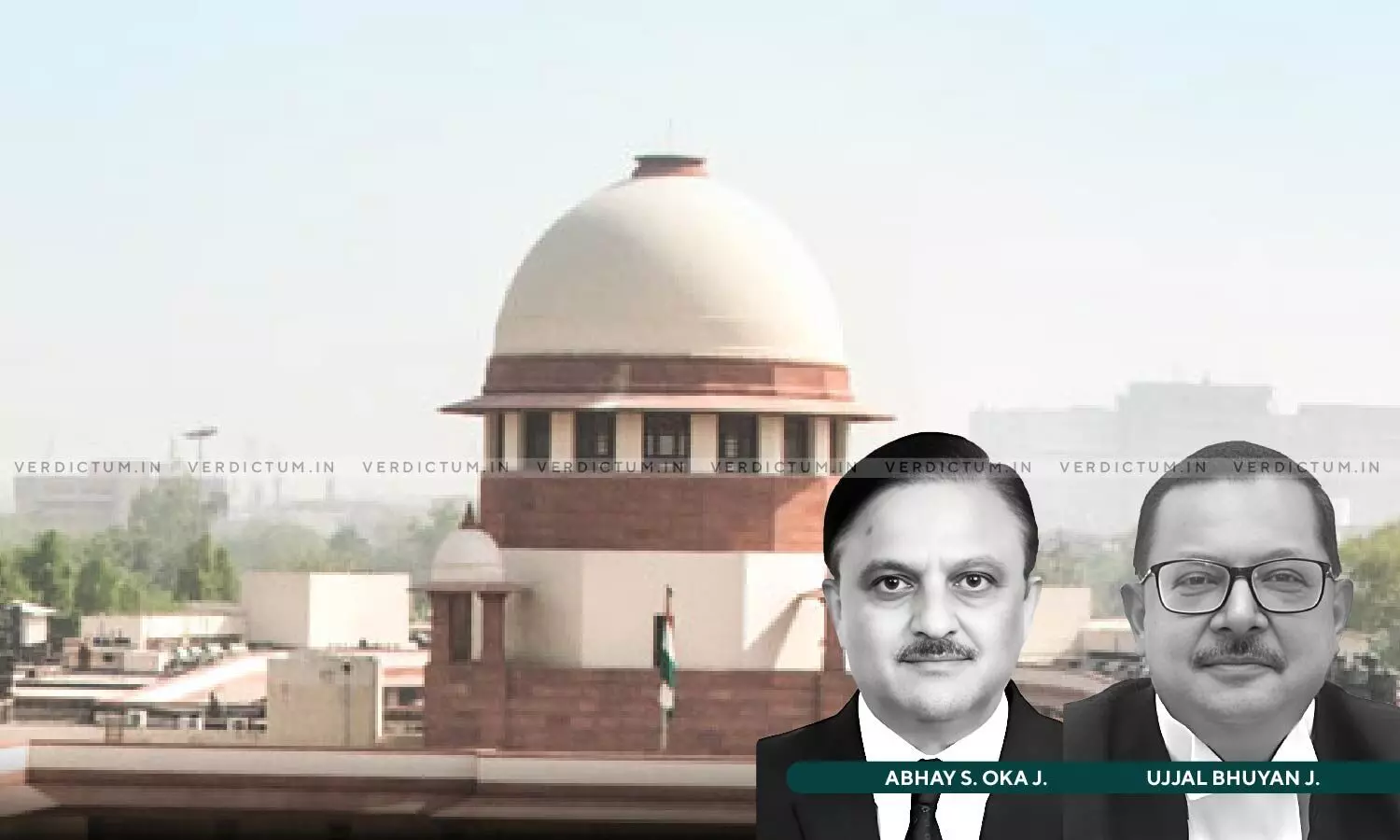
Power To Grant Interim Compensation In Cheque Bounce Cases U/S 143A NI Act Discretionary: SC Issues Guidelines
 |
|The Supreme Court held that the exercise of power to grant interim compensation in cheque bounce cases under sub-section (1) of Section 143A of the Negotiable Instruments Act, 1881 (N.I. Act) is discretionary and not mandatory.
The complainant filed a complaint under Section 138 of the N.I. Act against the appellant, alleging dishonour of a cheque made towards payment of agreed amounts in various business ventures. Subsequently, the complainant sought interim compensation under Section 143A of the NI Act, which was granted by the trial court and upheld by the Jharkhand High Court.
The Supreme Court had to decide on the factors to be considered while exercising powers under sub-section (1) of Section 143A of the N.I. Act.
Justice Abhay S. Oka and Justice Ujjal Bhuyan observed, “Section 143A can be invoked before the conviction of the accused, and therefore, the word “may” used therein can never be construed as “shall”. The tests applicable for the exercise of jurisdiction under sub-section (1) of Section 148 can never apply to the exercise of jurisdiction under subsection (1) of Section 143A of the N.I. Act.”
AOR Shubham Bhalla represented the petitioner, while Advocate Prateek Yadav appeared for the respondent.
The appellant had challenged the said order before the Supreme Court arguing that Section 143A of the N.I. Act uses the word ‘may,’ which made the provision discretionary.
“While deciding the prayer made under Section 143A, the Court must record brief reasons indicating consideration of all relevant factors,” the Court remarked
The Court provided the following parameters for exercising the discretion under Section 143A of the N.I. Act:
- The Court must evaluate the merits of a case made out by the complainant and the defence pleaded by the accused in the reply to the application. “The financial distress of the accused can also be a consideration.”
- If a complainant made out a prima facie case, only then a direction to pay interim compensation could be issued by the Court.
- The Court may exercise discretion in refusing to grant interim compensation if the defence of the accused was found to be prima facie plausible.
- If the Court concludes that a case warrants interim compensation, it will also "have to apply its mind to the quantum of interim compensation to be granted." While doing so, the Court should also consider several factors such as the nature of the transaction, the relationship, if any, between the accused and the complainant, etc.
The Court stated the parameters given by the Court were not exhaustive and that “there could be several other relevant factors in the peculiar facts of a given case.”
Accordingly, the Supreme Court partly allowed the appeal.
Cause Title: Rakesh Ranjan Shrivastava v. The State Of Jharkhand & Anr. (Neutral Citation: 2024 INSC 205)
Appearance:
Petitioner: AOR Shubham Bhalla; Advocates Rajnish Ranjan, Yajur Bhalla, Gauri Bedi, Anchita Nayyar, Akansha Gulati, Ragini Sharma, Rohan Chanda, Alex Noel Dass and Rohit Pandey
Respondent: AOR Ranbir Singh Yadav and Madhusmita Bora; Advocates Prateek Yadav, Mohd. Shahrukh, Yogesh Yadav, Pati Raj Yadav, Pratima Yadav, Akansha Singh Yadav, Vishnu Sharma, Pawan Kishore Singh, Dipankar Singh and Anupama Sharma